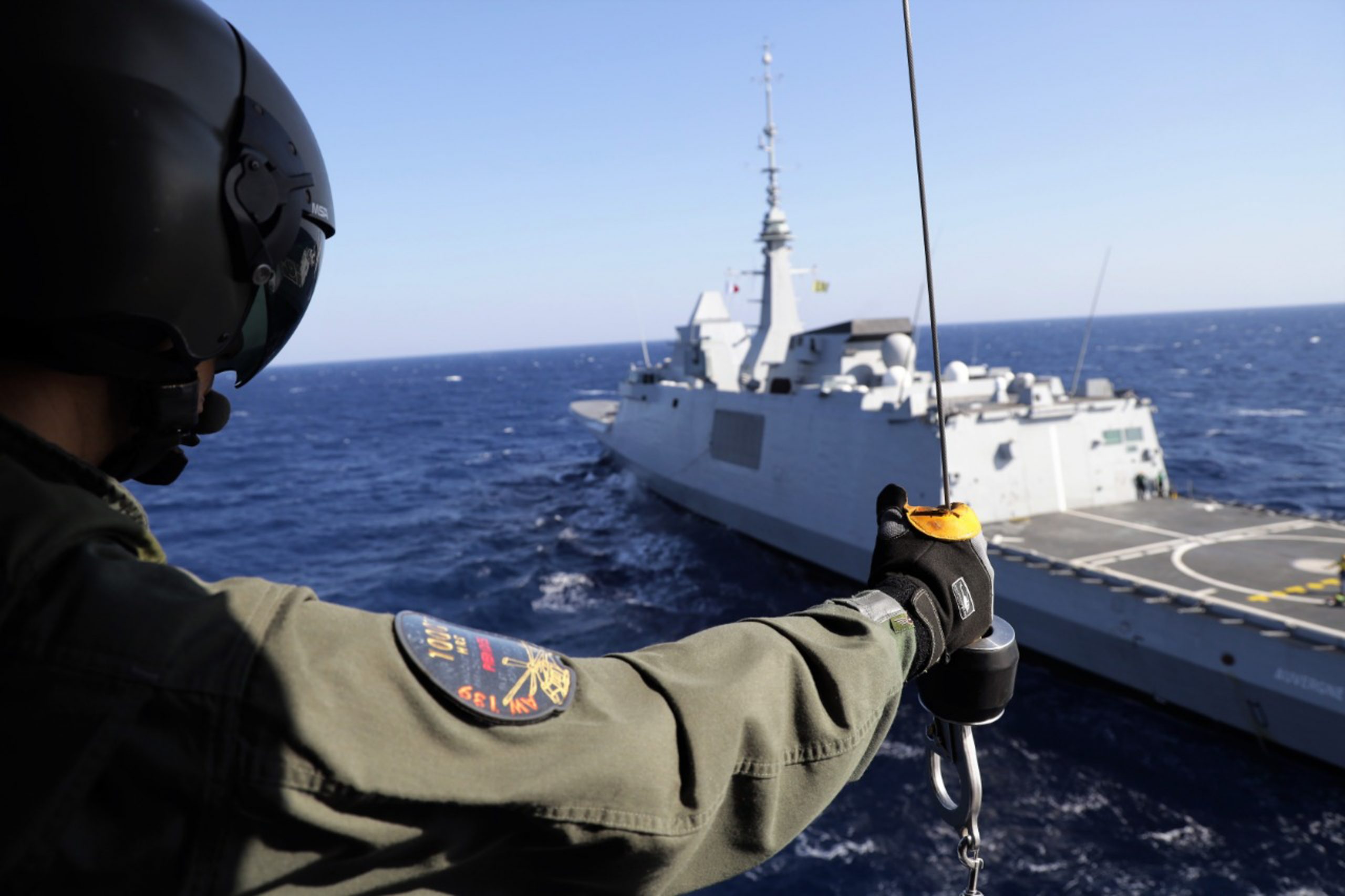Greece will freeze extra defense spending until further notice, apart from programs already being implemented, Greek Defense Minister Nikos Dendias said over the weekend, while citing a re-evaluation of the country’s defense outlays and a more efficient handling of related spending.
A slow-down in defense spending will ostensibly allow Athens to evaluate not only its specific security requirements but the ever-evolving geopolitical landscape in its “neighborhood”, according to the reasoning reportedly expressed during a recent high-level meeting last month chaired by Prime Minister Kyriakos Mitsotakis, with the participation of Dendias, national security adviser Thanos Dokos and the Hellenic Armed Forces Chief of Staff, Gen. Konstantinos Floros, among others.
The “freeze” in additional defense spending reportedly puts on hold an ambitious program to build corvette-type warships – possibly in a Greek shipyard – and the acquisition of a fourth FDI HN or Belh@rra-class frigate. An option for such an acquisition has reportedly expired, in fact.
In addition, he cited an already announced suspension in plans to build a naval base to host naval transport vessels, eyed for the Pagasetic Gulf, as well as a major renovation of the Souda anchorage on western Crete. Nevertheless, certain projects for the strategically important Souda Base will continue, he said.
“It is my duty to ensure that Greek taxpayers’ every euro is spent only if necessary, and only if it’s part of a national strategy”, while underlining that defense diplomacy takes place far beyond the scope of whatever purchases.
At the same time, he underlined that the Mitsotakis government will respect contractual commitments that derive from the major ongoing armament programs, with the aim, however, being to balance needs and resources.
Some of the ongoing weapons procurement programs include, among others, acquisition of a trio of French-made FDI HN or Belh@rra-class frigates, fielding a squadron of Rafale fourth-generation fighter planes and modernization of the country’s F-16 fleet into “Viper class”, as well as delivery of MH-60R helicopters by the Hellenic Navy.
Regarding the latter, according to military sources, the US Navy this week completed the issuance of a certificate for three of the seven helicopters being prepared for delivery to the Greek armed forces.
At the same time, Athens is still awaiting a final response by Washington over Greece’s inclusion in the F35 program. The Greek government has previously signalled its intent to acquire the state-of-the-art stealth-like warplane.
Dendias said another priority is an expansion and boosting of domestic defense industries. He noted that problems faced by the Hellenic Aerospace Industry (HAI) and Hellenic Defense Systems SA are also again coming under scrutiny, so that the latter can fully meet national needs.
Additionally, he said a contract with a German-Dutch consortium and a decision over which Greek shipyard will undertake the upgrading of the Hellenic Navy’s MEKO-type frigates will come by the summer.
Dendias said the government has managed after four years and almost 14 billion euros worth of current and future spending to reverse the armed forces’ under-funding, up until 2019. However, as he emphasized, “we are obliged to prioritize and plan our defense programs over a 12-year period…and even if the EU decides to loosen its budgetary criteria related to the defense spending, resourses are not unlimited.”



